More Thoughts on Science and Fiction
 Based on a few reviews and comments concerning my Christian sci-fi series, Gateway to Gannah, I must conclude that a segment of the reading public considers the phrase Christian sci-fi an oxymoron. In their view, Christianity and science in any form simply do not mix.
Based on a few reviews and comments concerning my Christian sci-fi series, Gateway to Gannah, I must conclude that a segment of the reading public considers the phrase Christian sci-fi an oxymoron. In their view, Christianity and science in any form simply do not mix.
It’s a bit perplexing. The term science fiction (which true fans prefer to abbreviate “SF”) describes a wide swath across the literary world, much of it a far cry from hard science. And most people are okay with that. But mention the scriptures in the sci-fi context, and eyebrows rise high. What does Christianity have to do with science?
That attitude is understandable, I suppose, given Galileo’s infamous conviction by the Roman Inquisition in the early 1600s. Most don’t understand that the incident had more to do with ignorant abuse of power than scriptural truth. The Roman Catholic Church at the time held the official position that the earth is a fixed object with the sun and stars moving around it. They based their opinion on the scriptures—but nowhere does the Bible actually teach that.
It’s important to understand that the Bible is not a science book. It deals with spiritual truth (things we mortals are ill equipped to comprehend without supernatural guidance), not physical realities (things we can observe with our own faculties). It makes reference to physical facts: Job 6:6, the observation that an egg white is rather tasteless without salt; Ecclesiastes 1:7, which deals with the water cycle; or 1 Corinthians 15:36-41, discussing elements of seed germination, species distinctions, and the variations in light intensities of various celestial bodies. But it points to these flesh-and-blood things that we’re all familiar with in order to illustrate spiritual truths. It’s obvious from their context and the content that these verses were not written to teach astronomy, biology, or scientific principles.
And that, I believe, is where we get messed up. The medieval church interpreted verses such as 1 Chronicles 16:30 and some of the Psalms (93:1, 96:10, 104:5) that stated that God will not allow the earth to “move” as dogmatically teaching that the physical earth is fixed in space. To them, reference to the sun “rising” (Ecclesiastes 1:5) taught it was the sun that moved, not the earth. But if you read those passages, you’ll see the position of things in space is not the point. In each case, the physical example illustrates a spiritual truth.Church people are by no means the only ones who misinterpret evidence.
All of us tend to take the information our senses provide and translate it into a language our personal perspective and worldview can understand. And sometimes, we mistranslate.
Evolutionists and creationists alike accuse one another of the same thing: his mind is already made up; he won’t listen to reason. Or, how could any thinking person be so blind to the plain truth? We think when someone doesn’t see things the way we do, that person must really be dense.
There are a significant number (though I don’t know the statistics) of highly educated scientists in all disciplines who are Christians, and creationists. They accept the same physical evidence that the evolutionists see, but they interpret it differently. They realize that, although some might see these things as being contradictory to the scriptures, the evidence—God’s revelation in the physical realm—is always and altogether consistent with God’s written revelation. He cannot lie; therefore, both His world and His word are true. When we can’t see a way to reconcile the two, it’s not necessarily that one or another is wrong, but that we don’t fully understand.
Since all SF is speculative (imaginative what-if scenarios based on reality), it’s not unreasonable that some of these scenarios might involve God. If someone thinks that’s inappropriate, I’m not offended. What bothers me—in case you haven’t figured it out from my previous posts—is when people come up with speculative theories and call it science.
Earlier, I mentioned the so-called Big Bang Theory as one such piece of hard sci-fi-billed-as-fact. Today, let’s take a look at DNA (the existence of which is hinted at in 1 Corinthians 15:39, as mentioned above).
As I’m sure you’re already aware, DNA is the abbreviation for deoxyribonucleic acid, a complex chemical structure that contains an organism’s genetic code. Each of the human body’s approximately 100 trillion cells contains about 10 billion DNA molecules, sometimes called base pairs. The sequence of chemicals within these base pairs provides the instructional code for your entire body.
Not only are these structures intensely complex, but also, the information contained within the DNA code must be translated so the organism’s tissues can use it. Positive and negative electrical impulses are required to perform these operations. All this is accomplished with intricate perfection in a process similar to a highly advanced, highly miniaturized computer. This is not the venue for detailing all this, but more information is readily available to anyone who wants to research it. Suffice it to say that even in a single-celled creature, the utter complexity of these molecules is astonishing.
This is all fact, not fiction, and I’ve never heard of anyone denying it. But creationists look at the evidence in its breathtaking awesomeness and see it all as God’s magnificent design. Evolutionists look at the same facts and say, wow, isn’t it amazing what can happen when lightning strikes some dirty water.
Yes, that’s how the story goes. Lightning struck, and voila! A living creature with a complete genetic code, able to eat, digest, and replicate itself. And turn itself into a yet more complex organism with its own distinct genetic code. Don’t talk to me about some mythical  intelligent being who designs and creates—that’s just fairy tales. Let’s stick to hard science, things we can test and prove.
intelligent being who designs and creates—that’s just fairy tales. Let’s stick to hard science, things we can test and prove.
Or so they say.
The more we learn about this world we live in and the universe in which it exists, the more complicated we find it. The dizzying depth of its intricacies makes it impossible to imagine its having created itself by random chance, as some say “science” proves. The evidence is neutral, however, and by itself, proves nothing; it’s people’s interpretations of it that lead to controversy.
So let’s go ahead and speculate. There’s much we don’t know, much of which we’ll never know. Wondering about it, casting about for possible explanations or extrapolations, is good mental exercise. But there’s no reason why it can’t be a spiritual adventure as well.
“Real” scientists can be Christians. And in the literary world, there’s nothing ridiculous about sci-fi characters believing in and making reference to the scriptures.
There’s no contradiction between science and Christianity in their pure forms.


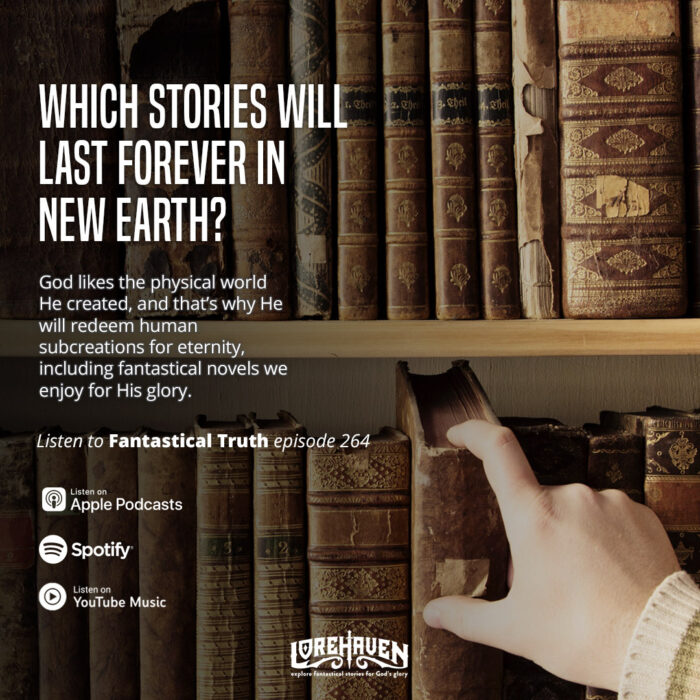
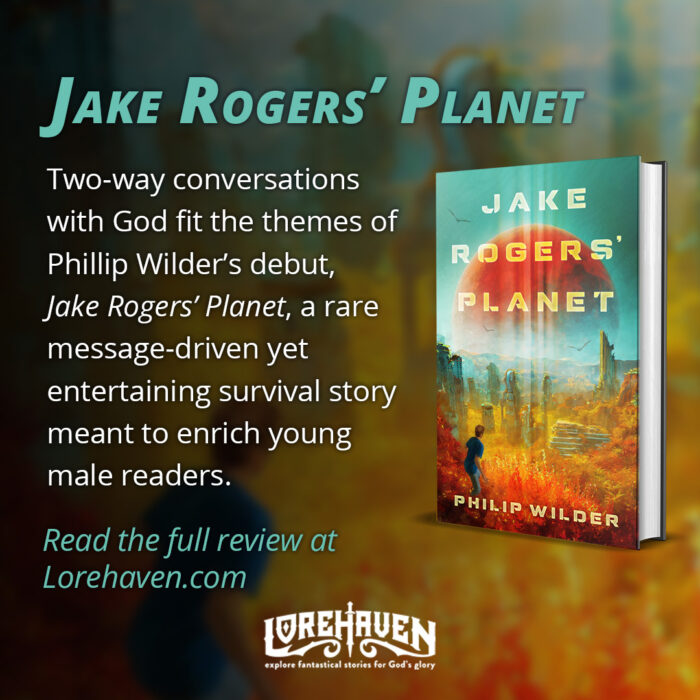

















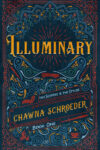




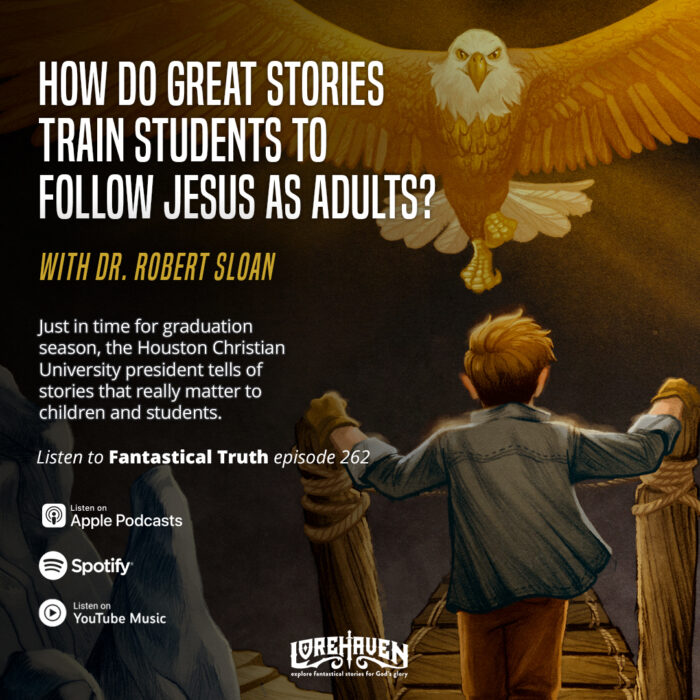



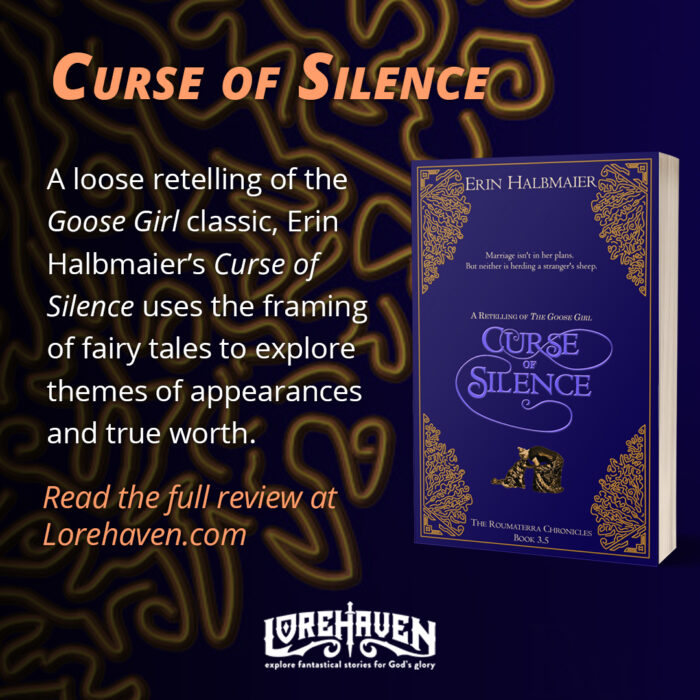







I’ll agree there is push back when trying to enter the realm of Science Fiction with anything carrying a Christian theme. I’ve run in to this with my own writing a time or two as well. If we can continue to turn out quality writing though, the audience will warm to the story, in my opinion.
Loved this post! As someone who has just finished a science fiction novel with a definite Christian worldview, I am pleased to find some else out there who thinks as i do.
Thanks, Mark! I agree, story is key. The reader might disagree with where we’re coming from but enjoy the story nevertheless. Thanks also to Keith — I suspect there are more of us out there than is usually acknowledged.
I think you’re right that there are more of us out there. The Left Behind series, while more Speculative than SciFi, proved there is a viable market. If we can band together and continue to produce quality writing I think we can build an excellent niche.
Well, even “science” fiction isn’t all that scientific sometimes. I mean, look at all the things the sonic screwdriver can do.
Aaaand now my urge to play devil’s advocate is raising its head. There are a significant number of scientists who are Christians and who DO believe in evolution, you know. They’re just not Biblical literalists, which probably disqualifies them as “real” Christians in the minds of some people. The way a biology professor at my college put it, it’s not that science and faith are two sides of the same coin, they’re entirely different coins. Science is empirical, it’s about the things you can measure and quantify and all that jazz. Religion/faith is not. This isn’t a “your peanut butter’s in my chocolate” moment, it’s “what the shell is your shampoo doing in my chocolate?”
Which means that evolution, as being completely unproven and unfalsifiable, is actually a religious study. 🙂 Of course there are Christian scientists who believe in evolution. More to the point, there are non-Christian scientists who DON’T. It is not a matter of whether or not scientists have faith, but to what do they ascribe their faith? The study of origins is inherently unscientific; without a witness, you have nothing observable, hence, nothing more than a feasibility theory, not a scientific fact.
Plate tectonics are also a theory, but the vast majority of Christians accept it and don’t quibble over the semantics of “theory” for it. Theory, in scientific terms, is just a step down from law, and there aren’t that many scientific laws.
But is your objection to evolution in the concept as a whole, or in the study of origins? As much as you might want to, you can’t really derail the concept as a whole just by quibbling over the speculations on the origin. Evolution as a process is pretty well documented, at the least in bacteria.
Evolutionary changes within a species are, as you say, well documented. The idea that all one simple life form was the origin of all life is another matter entirely.
Where science and faith intersect is a Christian says God made it all. Science attempts to figure out how He did it, since the Bible never lays out how exactly God did it. That is, what processes He used scientifically. The only thing that would prevent the adoption of an evolutionary view for a Christian is if a Genesis 1 day is interpreted to mean a 24 hour day.
But evolution doesn’t necessitate a “spontaneous generation” either. A Christian could potentially theorize that God created by striking pond water with lightning, but it couldn’t be an accident or random chance, it would be because God caused it to happen specifically to create. He could have, theoretically, used evolution to create all the species. But it wasn’t accidental, God’s hand is behind it.
So while a lot of Christians reject evolution, and lot don’t, and in either camp it doesn’t negate one’s faith abiding parallel with science. In effect, if we translate “faith” into a “world view,” this makes more sense. Everyone has a world view upon which is based truths accepted as true, not because of evidence, but by faith. This is as much true for the atheist as it is for the Christian.
For myself, I’m somewhat agnostic on how God created the world. I figure if it was so all fired important, God would have made a point to tell us. How isn’t the point of Genesis 1 anyway. By a long shot. Focusing on that has caused more people to miss the real message there.
I don’t know if you’ve met literalists and/or Young Earth Creationists. They DO interpret 1 day as 24 hours. I personally find them creepily disturbing, like snake handlers and speakers-in-tongues-on-demand. But you and I could get along, because I lean agnostic in the origin-of-the-world type of stuff, when I can muster anything beyond apathy in the subject. How we got here just doesn’t seem to matter as much to me when we’re HERE and have all our problems and baggage.
It’s true; we do interpret a day as 24 hours. I don’t handle snakes, and I don’t speak in tongues. Neither do I insist a person must believe this to be a Christian. The key thing, as others have noted, is not how God created the heavens and the earth, but that it was He who created it.
I know the difference between YEC and the Charismatic stuff. The reason I lump them together in creepily-disturbingness, along with the people who blame hurricanes on gay people, is how they refuse to listen to criticism or dissent or heavily peer-reviewed science about how untreated snake venom from proven-deadly species will kill you, how psychology and self-delusion work, that warm air off the Sahara makes hurricanes, and how they have some pretty good evidence that this rock/fossil is older than 6000 years. Not to mention the smug, holier-than-thou undertone of how superior they are that they don’t believe the doubters/scientists like those sheeple over there. It just bolsters my belief that conviction isn’t really a virtue.
(And my fed-uppedness isn’t all on you, Yvonne. There are many years of upbringing on the fringes of super-conservative Christian culture that prompt this rant.)
I understand, Notleia, and I’m not offended. A lot of damage can be (has been, and will still be) done through good intentions, as I believe is the case with radicals on all sides of every issue.
There was a time when I found solace in the smooth middle road of theistic evolution. Learning more of the facts moved me from that position to one many would term off-the-wall. I do, in fact, listen to criticism, which is why my viewpoint changed. However, I’m also aware that beating people over the head with a Bible doesn’t change their minds, but only drives them away. I believe we should present the plain facts and let the Holy Spirit do the rest.
Is it not possible that the good God who created everything can create a world, over night, that has rocks in it, fossils, et al that appear to human ‘science’ as though they were/are billions of years old? If you believe in an omnipotent god the answer must be yes.
I like how someone put it above, it isn’t important (or salvational for that matter) how God did it. It is important that He did do it.
The “God made it look old” argument is one of those glib answers that I don’t find satisfying anymore. Why would God bother screwing around with us? Doesn’t that seem petty? If it’s all about testing our faith, there are plenty of avenues for that without arguing about how old rocks are.
The fossils are real. Anything that implies that the record shows a false history is not a valid argument. Most YECs logically attribute the fossil record to the Noahic deluge, not a false appearance of great age.
Why would he do that? There would be no point!
I don’t think it’s fair for people to ban “Christian” stories from the Science Fiction arena when so many so-called atheist authors wrestle with the concept of God or some kind of supreme being. Or the afterlife, or other spiritual concepts.
It’s like that joke about the philosophers and scientists scaling the mountains of ignorance, and arrive at the top, only to find the theologians who have been sitting there for centuries. :-p
Well, what you believe happened in the beginning matters in terms of how you extrapolate into the future. Are we dealing with billions of years, then there might be billions more to go. Is it a young Earth? That changes things. You gotta stay true to your beliefs when you write (at least as true as the character allows).
This makes for some really interesting theological SF questions. If humans leave earth, what happens at the rapture or when heaven and earth are destroyed in fire? I think a cool idea for a story is a bunch of humans outside our solar system watching earth burn like a scroll and wondering if they missed the boat. There, that’s a freebee.
Honestly it’s like y’all said. People read in the genres they like, and they read good stories. If I read a good story and I disagree with the author (i.e. Lewis in Perelandra about the throne in the deep, pointing to a sort of theistic evolution) I am going to forgive it if it is consistent and if there’s a good story.
Except Earth won’t be destroyed in fire. It will be renewed.
2 Peter 3:10 refers to a refining, not destroying fire.
Romans 8 says “the creation itself” longs for its renewal, just as humans do. The planet Earth’s fate is tied to ours’. If Earth isn’t resurrected, neither are we.
Revelation 21 promises a New Heavens and New Earth, “new” in the sense of renewed — in a reversal of the Genesis 3, God comes back to walk with man not only in His garden, but with a City at the Kingdom’s center, the New Jerusalem.
By the way, I now believe “rapture” is simultaneous with resurrection. It took my fandom of the “Left Behind” series (which I still enjoy) to make me realize that. But the LB series rather bizarrely pictures a first resurrection at the Rapture, whereupon people head off to heaven to their mansions (a New-Earth promise), and then later we get at least two more human resurrection “phases” — at Christ’s physical return, and then at the end of the Millennium. That’s odd.
See, while you all are talking about Genesis, I have to be the “maverick” and go off and talk about Revelation. (But I do agree that a great story, such as Lewis’s wondrous Perelandra, overcomes my disagreement with any of the author’s default theistic-evolution beliefs. Lewis is happily “creationist” now. 😉 .)
And here in lies the problem I’ve been running into with Christian Science Fiction. When an author creates a fictitious world that draws on biblical inspiration there are some readers who insist the story is awful because it doesn’t jive exactly with their interpretation of scripture. The idea that it is fictitious and a story framework for Christian based ideas is forgotten and the author excoriated for not being ‘biblical’. Take the premise of the story and run with it just as you would in a secular SciFi story. Unless, of course, the author purports the story to be their interpretation of scripture.
Like the extremely underrated Lamb Among the Stars series? I have to plug those books every chance I get, considering so few people know they exist.
Me too, but for a different reason. Namely, what really happened to Galileo?
First, the Greeks, specifically Ptomely, theorized that the earth was the center of the universe based on the best scientific and mathematical methods of his time. The medieval Church, as practically the only civic institution to survive the Roman Empire’s implosion and subsequent invasions, served as the primary preserver and propagator of such ideas so long as they did not directly contradict anything in Scripture and/or anything in Scripture could be found that might support them.
Mr. Galileo gets the credit for challenging this theory, although Copernicus (who was not imprisoned or threatened) predates him by around sixty years. Galileo was a university teacher who began teaching the Copernican theory was correct. His evidence was largely based on his own mathematical work and personal observation via the brand new telescope.
At this point the Inquisition declared the theory heretical. However, none other than the Pope himself asked Galileo to publish an unbiased presentation of it for consideration. Galileo instead published a work that presented one side as correct and the other view as the belief of fools. He was tried in Rome for heresy, although never from behind bars. Torture was threatened but never applied. He eventually plea-bargained his way out by accepting the charge of heresy and agreeing to house arrest, where he largely ignored the terms of his sentence and continued to work on his theories and projects.
So, we have a single teacher support a controversial new theory that challenges the entire scientific community’s collective understanding of the world based on a new technology not widely available for testing or peer review. Said person is then instructed to publish his views in a neutral scientific document; instead, he uses a literary device to lampoon those he disagrees with. His theory is subsequently dismissed and he is rejected as a true scientist by the leading educational center of the day.
Such is the persecution of Galileo, one which I daresay many a modern researcher seeking tenure or research grants might share direct experience with (sans the threat of physical torture). To suggest that the Church tried Galileo due only to a certain interpretation of Scripture is to ignore the (dare I use the word) evolution of science to that point in time.
I believe you’re right, Michelle, about the history of Galileo and the evolution (yes, you may certainly use the word!) of science. But the reason the Church was so adamant in their official position was because of their interpretation of the Bible. If their scriptural “science” were proven wrong, it would call all their teachings into question. They were right, of course — their stranglehold on education and “truth” had already been broken, and Galileo’s so-called heresy was just one challenge to their power. Or at least, that’s my take on it.
Certainly there were those who then (as now, in all arenas) who only cared about the challenge to power. But I believe many were as concerned about Truth (scientific and otherwise) as modern skeptics. To my mind, it’s more a story about how new inventions and discoveries challenge the status quo of an established scientific model, one which in this case had broad, historic evidence relating to mathematics, science, and Scripture (as the three were seen as intricately linked, rather than separate fields that might conflict).
As I pointed out, Galielo’s evidence was limited and difficult to replicate. It challenged not just the present Church but the ancient Greeks. He did not abide by the rules presented for engaging with the existing educational leaders of the day, and was censured for it.
Certainly, the political realities of the Protestant Reformation in Europe at the time played into the Church’s desire to keep things orthodox. Political realities shape how accepted certain new ideas in science are received today; consider, for example, the distrust many hold toward research produced by scientists employed by private industry as opposed to the university system.
I’m really not trying to say the Bible or their view of it had nothing to do with the verdict. Rather, that we may be missing the impact this event had due to how our separated church/state/science society impacts our ability to understand that Scripture and science were accepted hand-in-hand. Both sides used both forms of evidence to present their theories (with varying degrees of success).
I really don’t consider Galileo in the light of true martyrs of the time, those who were burned alive or hanged for specific theological stances on such issues as salvation and baptism. Instead, I’d liken it to how initial negative reactions to Einstein (who similarly turned an established gestalt upside down) were based not only on his actual science but also his Jewish ancestry (which eventually caused him to leave Germany).
We might phrase things differently, but I think we’re in complete agreement on this, Michelle.
The Galileo Incident wasn’t completely based on the Church’s biblical interpretation. They were also holding to mistaken Greek science. This is an important point. The Church was not antiscience, but held to the wrong science. This is lost on many of those who push the “Christianity and science don’t mix” fable and hold the Galileo Incident up as their poster child (I would recommend the book “Galileo’s Daughter” for a great history of the subject).
On other matters, should “Christian sci-fi” be called “Christian?” No one else labels their fiction according to their religious beliefs. I know, from a marketing perspective, publishers do it to reach a certain market. I get that. But not all Christians write specifically for any particular audience in mind. Do most do? I don’t know. I do know, if you don’t put a “Christian” sci-fi book in the sci-fi section, many fans of the genre will be missing out on something they may like. The internet has mitigated this to a point, but even on-line stores categorize in a similar fashion. It is interesting to point out that the fantasy and sci-fi of C.S. Lewis are usually not in the Christian fiction section.
You’re dead-on about the marketing aspect of genre labeling. I’d prefer to see the “Christian” tag used only on nonfiction titles and just let novels be novels. However, not only do publishers like to target a certain market, but also, readers like to know what they’re getting. Even so, when the titles are thus labeled, books that include aspects of the author’s faith are frequently blasted by reviewers who object to the “religious” nature of the book.
The problem is that unless you really, really soft-pedal the Christianity secular readers get annoyed it’s in the book. Secular SF and Fantasy fans generally aren’t that congenial to Christianity, which is why you can count on ten fingers the amount of books with explicit Christian themes in them.
A lot of Christians really don’t get that times have changed. Lewis published in a time where cultural Christianity was a strong enough force and humanism/atheism was a weak enough one that there was little controversy in doing so.
The Left Behind series, say what you want about the theology within, did quite well. That series demonstrated there is a market thirsty for good writing. We have to do two things. One, write well. Two, figure out how they marketed that series and try to repeat it as best we can.